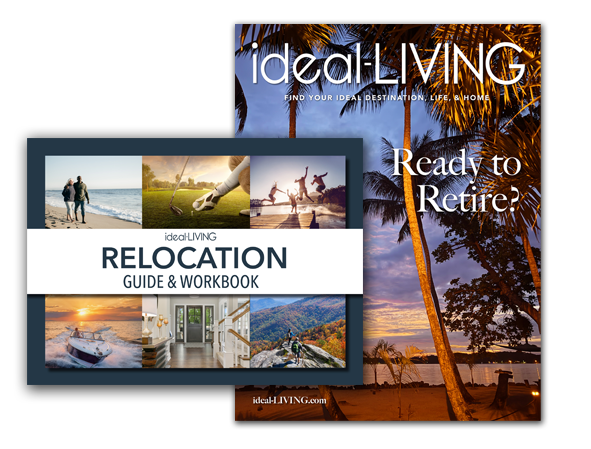
Buying a Second Home in the U.S.: What Foreign Nationals Need to Know
Buying a Second Home in the U.S.: What Foreign Nationals Need to Know
The credit crunch, glut of homes on the U.S. market and sellers’ eagerness to deal has created some fantastic opportunities for foreign nationals with solid capital. Snowbird buyers from Canada and the United Kingdom are taking advantage of this opportunity in droves, flocking to the warm climates of Arizona, Nevada, California and Florida.
 “Fifty percent of the homes being purchased in Arizona are being purchased by Canadians,” says Terry Ritchie, a certified financial planner at Transitional Financial Advisors who splits his time between Canada and Arizona. “I get two to three phone calls a week from real estate agents and developers. With the weakness of the dollar and the way that prices have diminished, it’s like the stars have finally aligned. People have been dreaming of this day forever.”
“Fifty percent of the homes being purchased in Arizona are being purchased by Canadians,” says Terry Ritchie, a certified financial planner at Transitional Financial Advisors who splits his time between Canada and Arizona. “I get two to three phone calls a week from real estate agents and developers. With the weakness of the dollar and the way that prices have diminished, it’s like the stars have finally aligned. People have been dreaming of this day forever.”
This is indeed a dream come true for many snowbirds that have fantasized about escaping to sunny climes in the dead of winter. Before you purchase your warm-weather retreat, be sure to acquaint yourself with the differences between the Canadian and U.S. purchasing processes, as well as the tax implications of owning a
second home south of the border.
Buying A Home: The Up-Front Costs
“The foreign national buyer is typically better capitalized, with a higher income than the U.S. buyer,” says Dan Green, a loan officer with Mobium Mortgage and author of TheMortgageReports.com. “The thing is, banks can’t really track down defaulting buyers in this case, so they have very little leverage.”
What this means is that lenders require more up-front evidence of financial stability from foreign national buyers than from the typical U.S. buyer. For one thing, many lenders require that buyers place closing costs and 12 months of principal interest taxes and insurance (PITI) in a U.S. bank account. They also require foreign national buyers to put more money down-in many cases, as much as 25-30%–and to demonstrate that they have at least three to six months of liquid reserves available (the equivalent of three to six mortgage payments).
In addition, in the current market, many banks offering loans to foreign nationals are holding the loans on their own portfolios, says Green, resulting in a range of loan packages and opportunities. He urges buyers to purchase properties that are already established. “For all foreign national buyers, a major risk is time,” he says. “Look for properties that are available now. The mortgage market is changing rapidly, so mitigate your risk by moving up your time frame. You’re taking a chance with a property that’s set to deliver in late 2009.”
Financing and Closing for Canadian Snowbirds
When you purchase a home in Canada, there’s typically a shorter closing time than there is when buying in the U.S. Be prepared to wait three to five weeks to close on your U.S. property from the point in time that you’ve signed the contract, during which time all of the third parties involved (inspectors, appraisers, insurance companies, lawyers, etc.) will be working on their part of the transaction. It’s wise to begin the loan pre-approval process before you begin searching for a particular property, so that when you find the one you’ve been looking for, you’re negotiating from a position of power. Finally, expect the term of the loan to differ from what’s available in Canada. Rather than the three-, five- or seven-year mortgages you’re used to, U.S. mortgage loans are typically 15 or 30 years in duration.
How to Maximize Profit and Minimize Taxes
As a Canadian snowbird, you can be treated as a U.S. citizen for tax purposes if you spend too much time at your American getaway. A good rule of thumb is to spend less than six months in the U.S. This minimizes the tax implications for you and doesn’t compromise your Canadian health care benefits.
Many Canadians opt to purchase property in Florida, the ultimate beach retreat. As you begin researching Florida real estate, you may find that the property insurance is very expensive. There’s a way around this: look for properties that were built after 1992, when the building codes changed, mandating that structures be created to withstand high winds. Insurance companies will not charge as much to insure properties that meet the new code requirements, since they are less likely to sustain damage. Also, select a property that doesn’t sit directly on or adjacent to the beach. These properties are at higher risk for flooding and hurricane damage, so they cost more to insure.
Let’s say that you decide to rent your Floridian property for the portion of the year that you spend up North. If you file a federal U.S. tax return and declare your rental income, you can deduct expenses such as maintenance, utilities or mortgage interest. Since Florida doesn’t have state income taxes, you’ll only be taxed once-by the federal government.
Avoiding Estate Tax: The Non-Recourse Mortgage
“There are ways that Canadians can reduce their exposure to U.S. estate tax,” says Ritchie, author of The Canadian Snowbird in America: Professional Tax and Financial Insights into a Temporary Lifestyle. “One of the ways is by placing a non-recourse mortgage against the property.” With this type of mortgage, the lender only has recourse against the property itself and not the borrower’s other assets. Furthermore, if the monies from the non-recourse mortgage are utilized for income-earning purposes, such as investment in Canadian stocks or bonds, borrowers may be able to deduct the interest paid.
Don’t Get Hung Up in Probate
Probate-the process by which real estate is transferred to a deceased owner’s beneficiaries-is notorious as a lengthy, stressful and costly process. To avoid the hassle, consider putting the deed in the name of a Cross Border Revocable Living Trust (CBRLT) rather than an individual person. There are a number of advantages to this option. For one thing, properties held by a CBRLT are exempt from Florida probate and do not have any filing requirements for the U.S. or Canadian tax authorities. Should the primary beneficiary of the trust become mentally incapacitated, the trust simply passes to the next designated beneficiary, avoiding the guardianship process. There are additional benefits to the CRBLT regarding divorce of the beneficiary, deferral of estate tax, and protection from creditors should the property be sold.
A Great Time to Buy
“Canadians are very conservative by nature,” Ritchie says. “These are good risks to take on… If snowbirds are thinking about buying real estate, this is a great time to do it.”
Receive your complimentary Relocation guide and magazine


